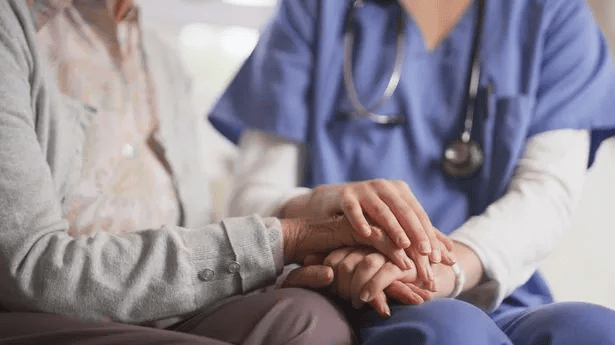what patient regrets the most before dying? hospice nurse Shares Heartfelt Truth about it

Regrets are a part of life. Whether it’s missed opportunities, unspoken words, or paths not taken, these feelings often linger, especially when time runs out to make changes. At the end of life, these regrets can be especially painful, leaving us longing for what could have been. But what are the most common regrets, and how can we live in a way that helps us avoid them?
What People Regret the Most
As we approach the end of our lives, certain regrets become more prominent. According to hospice nurse Julie McFadden, who has spent years supporting individuals in their final moments, the most common regret people express is, “I wish I would have appreciated my health.”

In her conversations with patients, McFadden hears this sentiment frequently. People often regret not prioritizing their health when they had the chance. They reflect on how they took simple things, like breathing, walking, or feeling the sunshine, for granted. These little things, which many of us overlook daily, become sources of deep gratitude when viewed through the lens of someone who no longer has the luxury of time.
Living with Gratitude
Julie McFadden has internalized this lesson herself. In order to appreciate her health and the small joys of life, she practices gratitude every day. She keeps a “gratitude list” where she notes things that may seem insignificant but are truly powerful—like the ability to take a deep breath or feel the warmth of the sun on her skin. She believes that by appreciating these small moments, we can shift our focus from what we’ve missed to what we still have.

Why It’s Important to Understand the Dying Process
Julie’s perspective on life and death comes from her years of experience working in both the Intensive Care Unit and hospice care. In her view, it’s crucial for people to understand the dying process before they face it themselves or with a loved one. This knowledge helps reduce fear and uncertainty during an inevitably emotional time.
“It’s so important for people to know about the dying process before they’re actually going through it with a loved one,” she said. By understanding what to expect, we can approach death with a sense of peace and preparation.

The Financial Burden of Dying
Unfortunately, there’s another regret that often comes up when discussing end-of-life care in the U.S.—the financial burden. Julie points out that access to quality hospice care can vary greatly depending on one’s resources. “Generally speaking, it helps to have money to die well, which I think is really unfortunate,” she said. Many people may not be able to afford the level of care they need, adding stress and hardship during an already difficult time.
https://www.instagram.com/reel/DCNU4Viyp1o/?utm_source=ig_web_copy_link
Embracing Gratitude and Living Fully
Ultimately, Julie’s insights serve as a powerful reminder of how important it is to value our health and to approach life with greater awareness and gratitude. Instead of waiting for a crisis to realize the importance of good health, we can start today by appreciating the small, everyday things we often take for granted.
Her work reminds us that life is short, and while we can’t control everything, we can choose to make the most of the time we have. Embrace gratitude, nurture your relationships, and take care of your well-being—you’ll thank yourself later.






